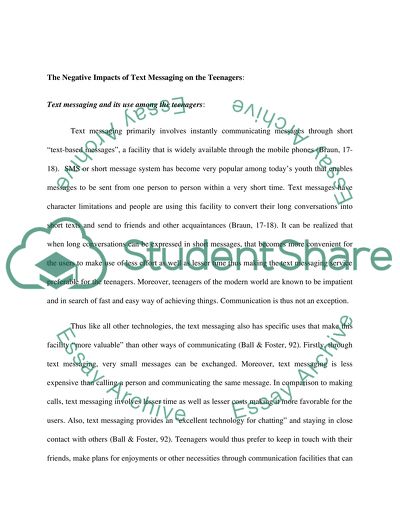Cite this document
(“The negative effects on the grammatical skills of teenagers due to Research Paper”, n.d.)
Retrieved de https://studentshare.org/english/1391050-the-negative-effects-on-the-grammatical-skills-of
Retrieved de https://studentshare.org/english/1391050-the-negative-effects-on-the-grammatical-skills-of
(The Negative Effects on the Grammatical Skills of Teenagers Due to Research Paper)
https://studentshare.org/english/1391050-the-negative-effects-on-the-grammatical-skills-of.
https://studentshare.org/english/1391050-the-negative-effects-on-the-grammatical-skills-of.
“The Negative Effects on the Grammatical Skills of Teenagers Due to Research Paper”, n.d. https://studentshare.org/english/1391050-the-negative-effects-on-the-grammatical-skills-of.


